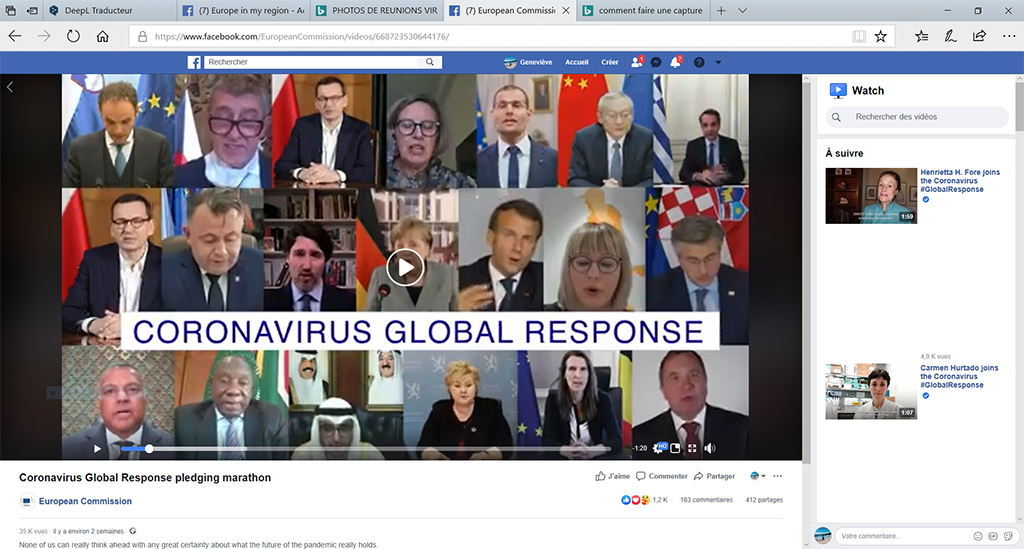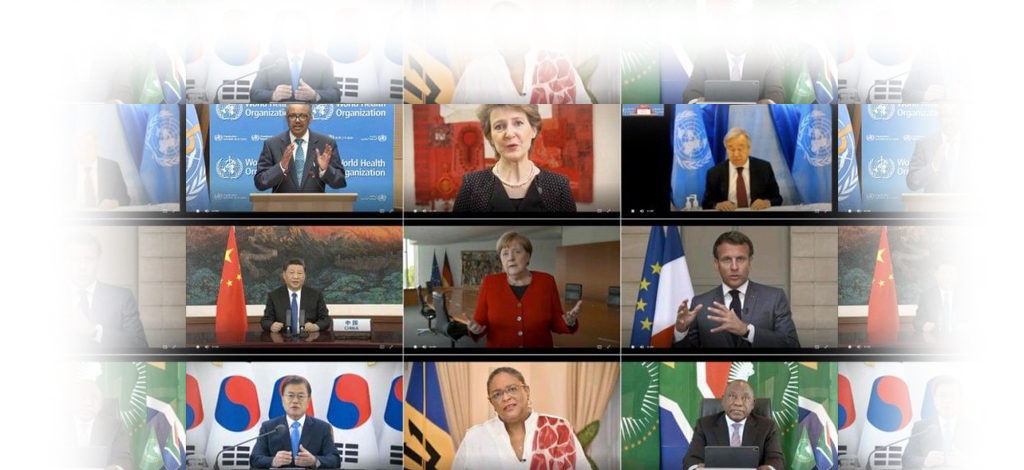The webinar, the star of the lockdown
The measures designed to curb the spread of COVID-19 forced companies and organisations to put in place new working and collaboration methods. As hundreds of thousands of people adjusted to a new way of (remote) working, the webinar became the real star of this lockdown period. To pursue its activities, Brussels International took advantage of the facilities that it offered. Here are some of the highlights of the past period.
A webinar is a portmanteau word, combining the words web and seminar. It is used to designate any type of interactive meeting, that is held on the Internet, generally for the purpose of collaborative work or distance learning.
Many institutions already used webinars long before measures were taken to curb the spread of coronavirus. But their use increased since as a revolution swept through companies, schools, public institutions, as well as the political world and the European institutions, whose headquarters are in our capital, changing the way we work.
COVID-19 disrupts international exchanges
While nothing can replace a face-to-face meeting, it is obvious that seminars on the other side of the world are temporarily impossible. Conferences, including international conferences and meetings at the highest level, therefore went the virtual route.
The webinar facilitates immediacy and proximity. The constraints of this crisis gave rise to an unprecedented abundance, emulation, reactivity, and pooling of talent. This development may also prove beneficial in the long term, saving time, money and protecting the environment.
Bilateral relations: exchange of good practices with the City of Beijing and its other partner cities
On 21 April 2020, the Beijing Municipal Government held its first major videoconference with its partner cities around the world. From Rio de Janeiro to Seoul and the Brussels-Capital Region, 67participants from 26 cities and 21 countries attended this virtual meeting. The Brussels-Capital Region was represented by Daniel Verheyden, Attaché for Bilateral Relations at Brussels International, and Mattias Debroyer, the Economic and Commercial Attaché in Shanghai of hub.brussels, the Brussels Agency for Business Support.
Experts and officials shared their experiences in implementing epidemic prevention policies, medical treatment strategies for patients with COVID-19, and measures to encourage the resumption of commercial activities.
This first large-scale videoconference by the City of Beijing was also covered during an information programme of the English-language Chinese TV channel CGTN.
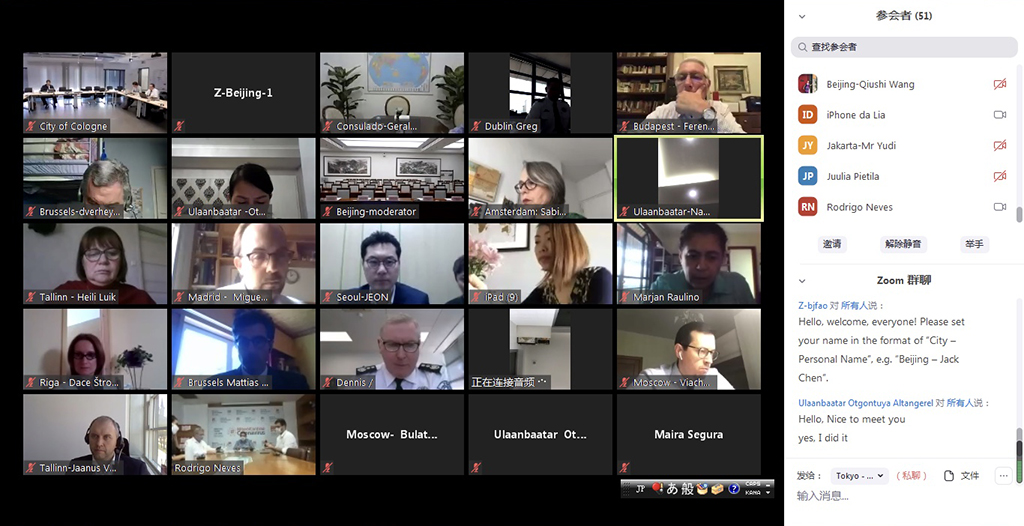
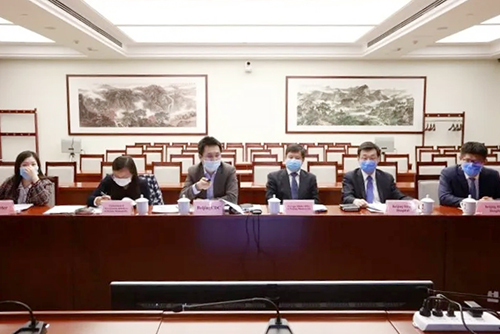 |
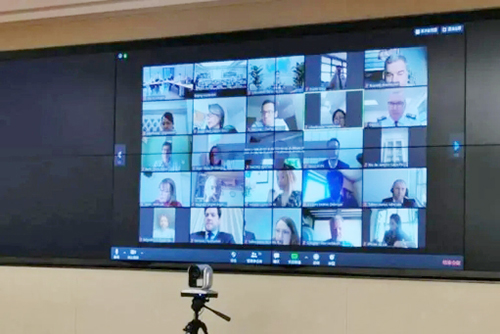 |
Development cooperation: Brussels International gathers about forty organisations
On 5 May 2020, the Development Cooperation team of Brussels International presented its call for projects on “Global and inclusive citizenship” to civil society. Forty organisations took part in this information session in order to better understand the challenges of this call for projects.
To make this virtual session as dynamic as possible, the tasks were divided. While one team member presented the key points, another one answered questions from the participants and clarified some of the points that were discussed in the chat.
Multilateral relations: webinar of the EUROCITIES network on the collaboration between the European Union and China during the pandemic
On 18 May 2020, 53 cities and regions participated in a webinar organised by the EUROCITIES network of European cities on the theme of cooperation between European and Chinese cities during COVID-19.
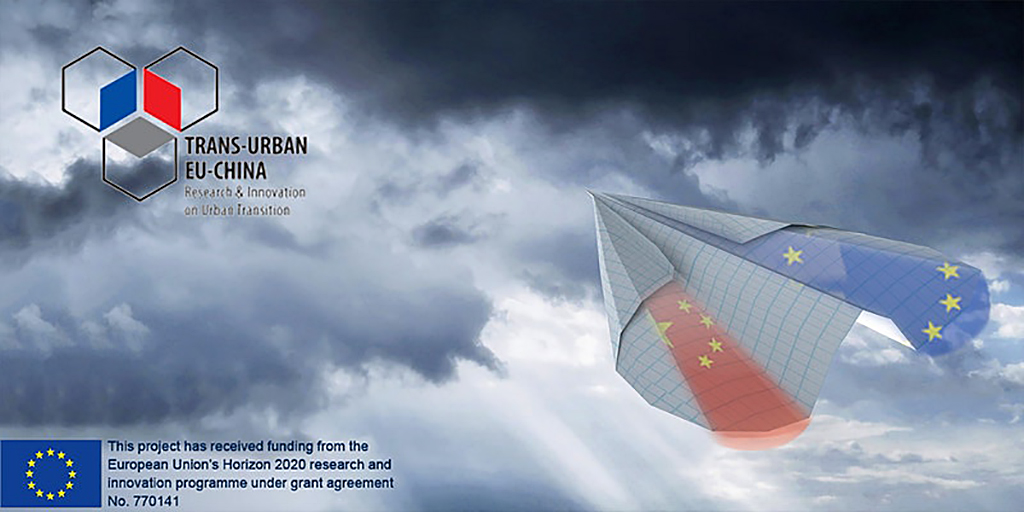
Representatives from Belgrade, Belfast, Bremen, Bristol, Brussels, Frankfurt, Ghent, Hamburg, Helsinki, and Vienna shared their experiences and mutual support initiatives with their Chinese partner cities.
Daniel Verheyden, who is responsible for Chinese relations at Brussels International, discussed the shipment of face masks by Sichuan Province and the City of Xi’an as part of the cooperation agreements with these entities.
As a result of the crisis, the friendship ties and the long-standing Sino-European collaboration became even stronger.
Exchange of good practices: support for the most vulnerable people in our society in times of crisis
The EUROCITIES network of European major European cities organised a series of “City dialogues” focussing on the theme of COVID-19, covering various themes, such as transport, economy or health care.
On 18 May 2020, a more unusual exchange of good practices took place on the theme of volunteering, bringing together volunteers and members of civil society. The participants discussed food distribution, support for the most vulnerable groups in our cities, the collaboration between volunteers and the authorities in the face of the consequences of coronavirus and the emergence of new forms of solidarity, with the examples of Bristol, Riga, Madrid, Birmingham, Toulouse, Poznan, the European Volunteer Centre (EVC) and the Brussels-Capital Region.
The presentation of the Brussels-Capital Region centred on the Brussels helps solidarity platform and the reception of migrants in these times of crisis.
Numerous virtual collaborations for the ERDF Directorate
The ERDF (European Regional Development Fund) Directorate of Brussels International also turned to webinars.
To ensure the continuity of its work in the context of this health crisis, the team largely relied on these tools to support project leaders and provide them with the necessary expertise. Technology also made it possible to virtually maintain the support and annual monitoring committees, made up of the project leader, the managing authority, and a representative of the cabinet of Minister-President Rudi Vervoort, which is responsible for the European Structural Funds. Financial and budgetary monitoring, with the cabinet, was also ensured through virtual collaboration, as was the programme evaluation, which is done with an external consultant.
In addition, the ERDF Directorate continued its collaboration, as a point of contact with the European institutions and the various actors concerned, including with DG REGIO for the preparation of the #EUinmyregion campaign, for the INFORM-INIO meeting and even the EGESIF (Expert Group on European Structural and Investment Funds). Contacts with ERDF colleagues from Wallonia and Flanders went ahead, as well as the meeting with the Hauts-de-France region, which brought together representatives from Brussels International, perspective.brussels, and Brussels Mobility.
